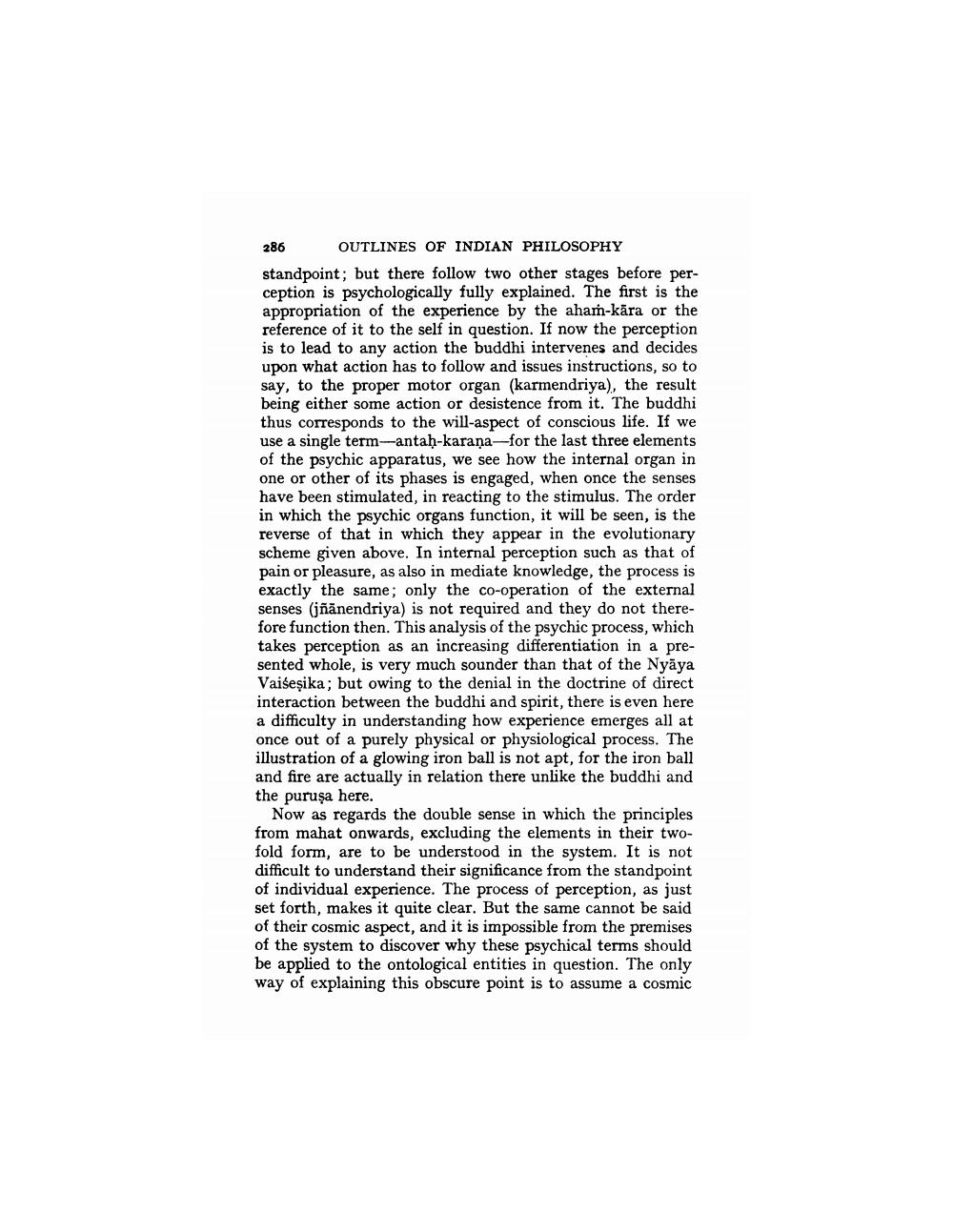________________
286 OUTLINES OF INDIAN PHILOSOPHY standpoint; but there follow two other stages before perception is psychologically fully explained. The first is the appropriation of the experience by the aham-kāra or the reference of it to the self in question. If now the perception is to lead to any action the buddhi intervenes and decides upon what action has to follow and issues instructions, so to say, to the proper motor organ (karmendriya), the result being either some action or desistence from it. The buddhi thus corresponds to the will-aspect of conscious life. If we use a single term-antah-karana--for the last three elements of the psychic apparatus, we see how the internal organ in one or other of its phases is engaged, when once the senses have been stimulated, in reacting to the stimulus. The order in which the psychic organs function, it will be seen, is the reverse of that in which they appear in the evolutionary scheme given above. In internal perception such as that of pain or pleasure, as also in mediate knowledge, the process is exactly the same; only the co-operation of the external senses (jñānendriya) is not required and they do not therefore function then. This analysis of the psychic process, which takes perception as an increasing differentiation in a presented whole, is very much sounder than that of the Nyāya Vaiseşika; but owing to the denial in the doctrine of direct interaction between the buddhi and spirit, there is even here a difficulty in understanding how experience emerges all at once out of a purely physical or physiological process. The illustration of a glowing iron ball is not apt, for the iron ball and fire are actually in relation there unlike the buddhi and the purusa here.
Now as regards the double sense in which the principles from mahat onwards, excluding the elements in their twofold form, are to be understood in the system. It is not difficult to understand their significance from the standpoint of individual experience. The process of perception, as just set forth, makes it quite clear. But the same cannot be said of their cosmic aspect, and it is impossible from the premises of the system to discover why these psychical terms should be applied to the ontological entities in question. The only way of explaining this obscure point is to assume a cosmic




